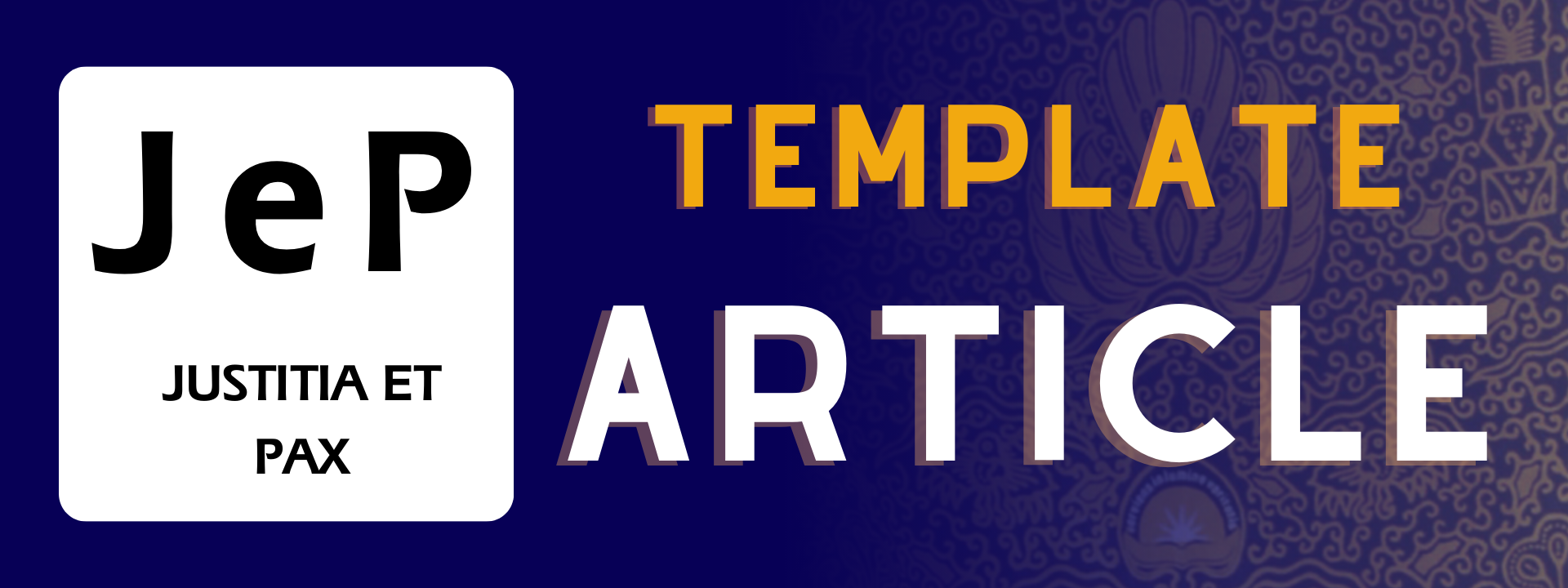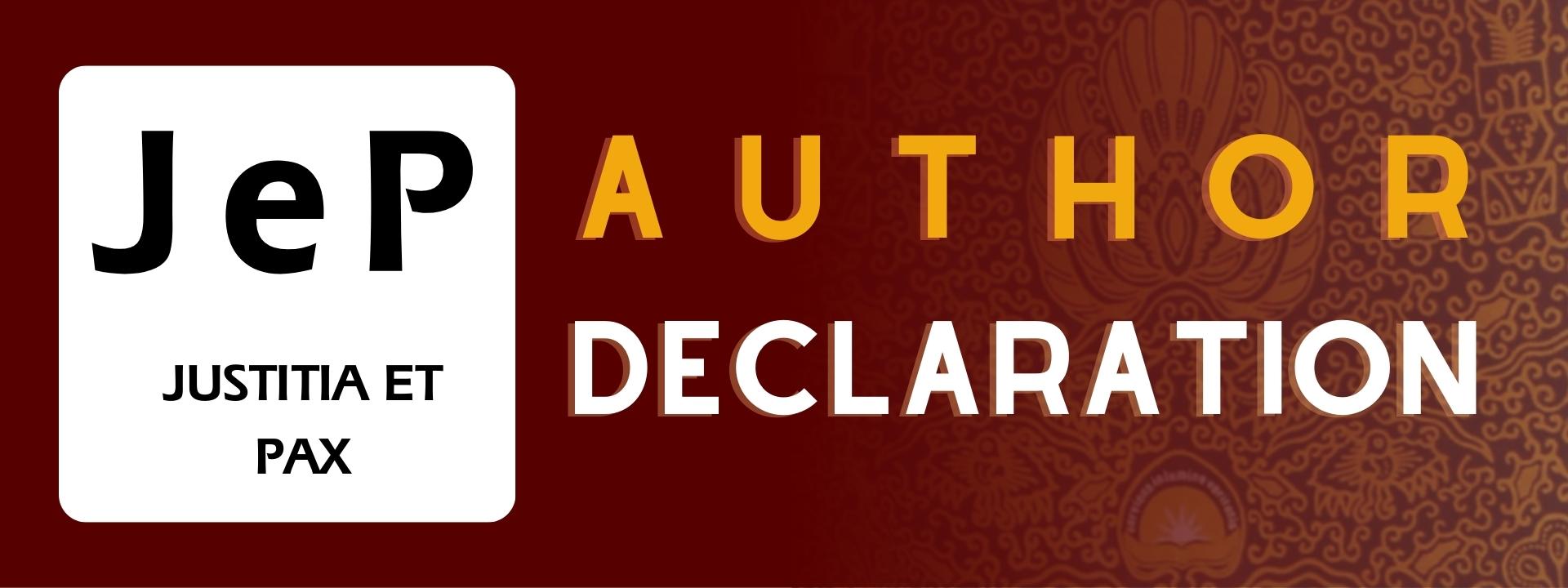THE IMPACT OF PANCASILA AS THE STATE IDEOLOGY OF INDONESIA TOWARD THE PROVISION ON DEATH PENALTY IN THE PENAL CODE BILL
DOI:
https://doi.org/10.24002/jep.v34i1.1629Keywords:
Pancasila, State ideology, Legal drafters, Specific punishment, The Penal Code Bill.Abstract
Pancasila has been the state ideology of Indonesia since the day after the independence of Indonesia that is on the 18th of August 1945. It was formulated by our founding fathers by taking our own values and cultures inherited by our ancestors from some old kingdoms such as Kutai in Kalimantan, Sriwijaya in Sumatra, and Majapahit in Java. One year after the independence on the 17th of August 1945, Indonesian government promulgated Law No. 1 Year 1946 concerning The Penal Code on 26th of February 1946. Through this law the government at that time stated that Wetboek van Strafrecht voor Nederlandsch-Indie (W.v.S. Ned. Indie (S. 1915 No. 732) as the main written penal code and was formally called Kitab Undang-undang Hukum Pidana (KUHP) which in Article 10 provides death penalty as the heaviest main punishment. Dealing with that provision there has been a long debate among Indonesian people whether death penalty is in accordance with Pancasila or not. Netherlands as the home base of death penalty dropped it out from its penal code in 1870 because of the strong struggle of human right proponents. In Indonesia a research carried out in 1981/1982 by The Law Faculty of Undip collaborating with the The Supreme Court found out that both proponents and opponents of death penalty used Pancasila as “justification”. In the effort to give respect to both parties legal drafters of the Penal Code Bill provide death penalty as “specific punishment” and put it out of the main punishment in the Penal Code Bill.
Key Words: Pancasila, State ideology, Legal drafters, Specific punishment, The Penal Code Bill.References
Arthur P. Crabtree, 1964. You and The Law, Rinehhart and Winston Inc., New York.
Barda Nawawi Arief, 1990. Pelengkap Hukum Pidana I, Fakultas Hukum Undip, Semarang.
J.E. Sahetapy, 1982. Suatu Studi Kasus mengenai Ancaman Pidana Mati Terhadap Pembunuhan Berencana, Edisi Kedua, CV Rajawali, Jakarta.
Moeljatno, 2008, Asas-Asas Hukum Pidana, Rineka Cipta, Jakarta.
Paulinus Soge, 2010, “Pembaharuan Sistem Hukum Indonesia Perspektif Hukum Pidana”, Masalah Aktual dalam Hukum: Sumbangan Pemikiran bagi Pembangunan Sistem Hukum Indonesia, Fakultas Hukum Universitas Atma Jaya Yogyakarta.
Paulus Wahana, 1993. Filsafat Pancasila, Penerbit Kanisius, Yogyakarta, Paulus Wahana, 1993. Filsafat Pancasila, Penerbit Kanisius, Yogyakarta.
PJ. Suwarno, 1993, Pancasila Budaya Bangsa Indonesia; Penelitian Pancasila dengan Pendekatan Historis, Filosofis & Sosio-Yuridis Kenegaraan, Penerbit Kanisius.
Sudarto, 1990. Hukum Pidana I, Yayasan Sudarto, Fakultas Hukum Undip, Semarang.
Syamsul Hidayat, 2010. Pidana Mati Di Indonesia, Yogyakarta, Genta Press.
Tim Redaksi Fokusmedia, 2007. UUD’45 Dan Amandemennya, Cet-Keempat, Fokusmedia, Bandung.
Walfarianto, 2014, Pendidikan Pancasila Untuk Perguruan Tinggi, Leutika, Yogyakarta.
Downloads
Published
Issue
Section
License
Authors who publish with this journal agree to the following terms:
- Authors retain copyright and grant the journal right of first publication with the work simultaneously licensed under a Creative Commons Attribution License that allows others to share the work with an acknowledgement of the work's authorship and initial publication in this journal.
- Authors are able to enter into separate, additional contractual arrangements for the non-exclusive distribution of the journal's published version of the work (e.g., post it to an institutional repository or publish it in a book), with an acknowledgement of its initial publication in this journal.
- Authors are permitted and encouraged to post their work online (e.g., in institutional repositories or on their website) prior to and during the submission process, as it can lead to productive exchanges, as well as earlier and greater citation of published work (See The Effect of Open Access).

This work is licensed under a Creative Commons Attribution-NonCommercial-ShareAlike 4.0 International License.




















